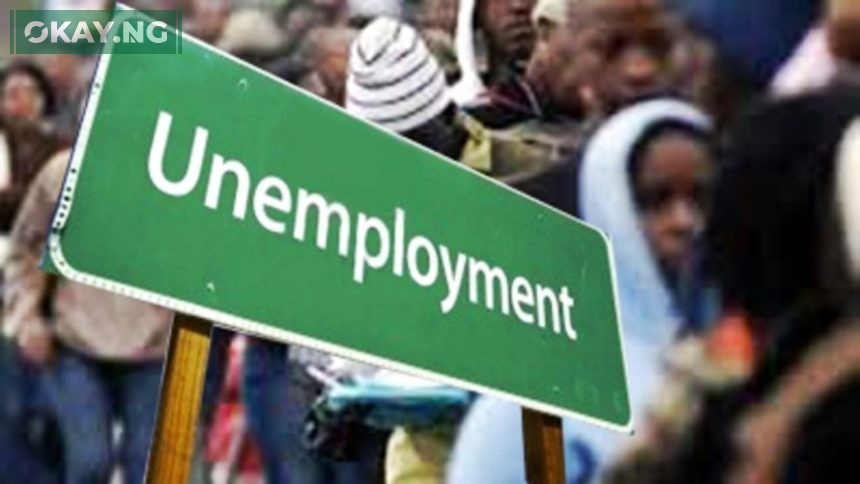Despite a plethora of job opportunities in Lagos, Nigeria’s economic hub, a significant skills gap is leaving many jobseekers unemployed, hindering economic growth and threatening the state’s long-term prosperity.
Each month, thousands of individuals enter the Lagos labor market, hoping to secure positions in the bustling city. However, a growing disconnect between available jobs and the skillsets of jobseekers continues to plague the workforce.
This widening skills gap threatens not only the state’s economic productivity but also its social stability and long-term growth prospects.
Job Vacancies and Unemployment
The Lagos Economic Development Update (2025) highlights a paradox in the labor market. On average, monthly labor demand stands at 2,837 job vacancies, while the supply includes 3,318 jobseekers. However, 816 jobseekers (26%) lack both education and experience, effectively reducing the pool of employable candidates to 2,502 individuals. According to the LEDU report, while jobseekers flood the market, employers struggle to find qualified candidates to fill key roles.
The skills mismatch in Lagos is more than just a labour market challenge; it has significant economic consequences that could slow the state’s growth trajectory. Lagos thrives on a productive workforce, but the increasing shortage of skilled labour presents multiple risks:
- Slower economic growth: Businesses face hiring difficulties, reducing productivity, delaying expansion plans, and ultimately impacting overall economic output.
- Rising social welfare costs: A growing number of unskilled and unemployed individuals increases dependency on government-run social intervention programs, stretching public resources.
- Expansion of the informal economy: Unskilled workers, unable to secure formal jobs, resort to the informal sector, where earnings are unstable, job security is weak, and tax revenues shrink.
- Brain drain and talent flight: A lack of local opportunities and inadequate incentives could push skilled professionals to seek employment in other states or overseas, further depleting Lagos’ talent pool.
‘While there are job openings, businesses cannot find candidates with the right skills,’ Ope George, Lagos State’s Honourable Commissioner for Economic Planning and Budget, related. ‘Bridging this gap is crucial for sustainable economic growth.”
Government Initiatives Aim to Bridge the Divide
Recognising the urgency of the issue, the Lagos State Government has launched several initiatives aimed at enhancing workforce readiness and employability. Among these interventions is the Life Skills Economic Empowerment Programme (LEEP), designed to equip jobseekers with essential skills that match labour market demands.
Read Also: 2025 Budget: Labour Minister Seeks Budget Boost for National Skills Development Initiative
Additionally, the government is collaborating with private sector employers, technical institutions, and digital learning platforms to provide job-specific training, particularly in technology, manufacturing, and service industries. These initiatives aim to ensure that Lagos’ workforce can compete in a rapidly evolving global economy.
The government has also prioritised vocational and technical education as a long-term strategy to bridge the skills gap. Efforts are underway to strengthen Technical and Vocational Education and Training (TVET) programs, focusing on practical, industry-relevant training.
‘Education alone is not enough,’ stressed an economist and labor market specialist, Dr. Funmi Oladipo. “We need targeted upskilling programs tailored to industry needs. Lagos must invest heavily in practical, hands-on training and digital education to prepare the workforce for future jobs.”
Bridging the skills gap requires more than just government intervention. Private companies and educational institutions have a crucial role to play in ensuring that graduates and jobseekers possess the skills required in the modern workplace.
Several leading firms in Lagos have begun investing in corporate training programs, offering apprenticeships and internships to help young people gain work experience. Universities and polytechnics are also adjusting their curricula to include more practical learning experiences.
The Impact on Jobseekers
The skills gap in Lagos has a profound impact on the lives of individuals seeking employment. Many young people find themselves trapped in a cycle of unemployment, despite their best efforts to gain education and training. The lack of opportunities can lead to frustration, despair, and economic hardship, particularly for those from disadvantaged backgrounds.
Looking Ahead
The Lagos Economic Development Update (2025) serves as a wake-up call. The report underscores the importance of building a resilient, future-ready workforce through collaboration between government, industries, and educational institutions. By investing in education, vocational training, and digital skills, Lagos can close the gap between job demand and supply, boost economic competitiveness, and create a sustainable, inclusive future for all.













